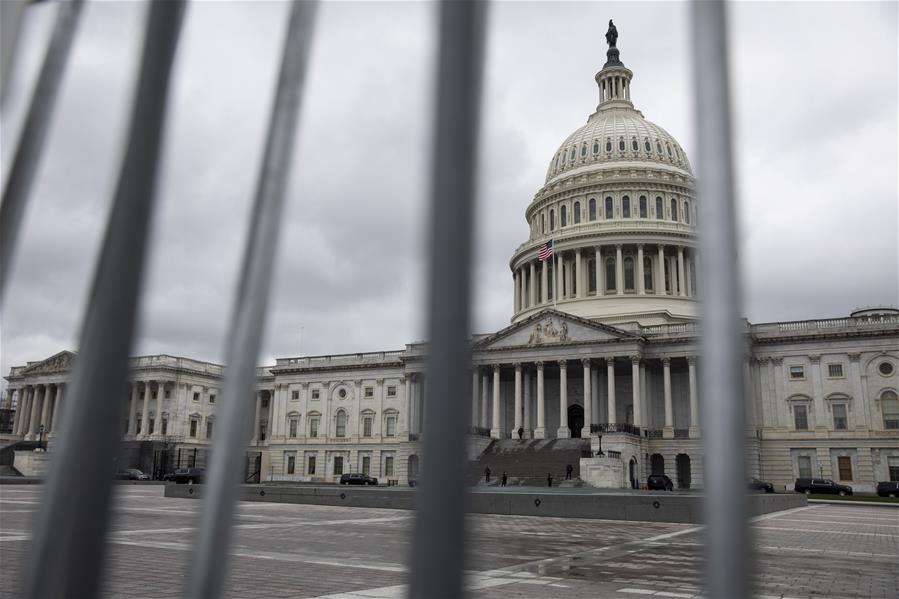
Photo taken on March 25, 2020 shows the U.S. Capitol in Washington D.C., the United States. The U.S. Senate on Wednesday night passed a 2-trillion-dollar stimulus package to blunt the economic fallout of COVID-19, after rounds of negotiations between Democrats and Republicans. (Photo by Ting Shen/Xinhua)
WASHINGTON, March 25 (Xinhua) -- The U.S. Senate on Wednesday night passed a 2-trillion-dollar stimulus package to blunt the economic fallout of COVID-19, after rounds of negotiations between Democrats and Republicans.
The upper chamber passed the bill in a 96-0 vote, well above the 60-vote threshold. The package needs to be approved by the House of Representatives, before being sent to President Donald Trump's desk for signature.
The bill, aimed at cushioning the economy from COVID-19 ravages, will provide small businesses emergency loans, business tax breaks, expanded unemployment benefits, 1,000-dollar-plus direct payments for working Americans, government aid for industries such as airlines and hotels, as well as more support for hospitals and state and local governments.
Calling it an "emergency relief," Senate Majority Leader Mitch McConnell, a Kentucky Republican, said at the Senate floor earlier in the day that the package will "help the people of this country weather this storm."
The Senate approval of the bill came a few hours after the White House and Senate leaders reached a deal early Wednesday morning on the stimulus plan, which was considered the largest rescue package in American history.
Government bailout for hard-hit companies and industries was one of the sticking points in the negotiation. Democrats insisted oversight provision should be put in place, recipients be immediately disclosed, and companies that benefit from the loans could not engage in stock buybacks for a certain period of time.
Some Republican Senators, including Lindsey Graham of South Carolina, voiced their disagreement with the expansion of unemployment insurance benefits, arguing that this could discourage people from returning to work. They requested capping bolstered unemployment benefits at 100 percent of workers' salaries, but a related amendment failed to pass.
Diane Swonk, chief economist at Grant Thornton, a major accounting firm, wrote in a blog Wednesday that the bill is designed to temporarily help individuals, firms of all sizes, hospitals and states "traverse COVID-tainted waters."
Swonk, however, said these measures "will not stop a recession from occurring." The goal is to blunt the blow to the economy "so that we have a foundation from which to recover," she said.
The White House had originally proposed an around 1-trillion-dollar stimulus package, but several rounds of negotiations among lawmakers ballooned the cost of the package to roughly 2 trillion dollars, far above the 700-billion-dollar Wall Street rescue in the wake of the 2008 financial crisis.